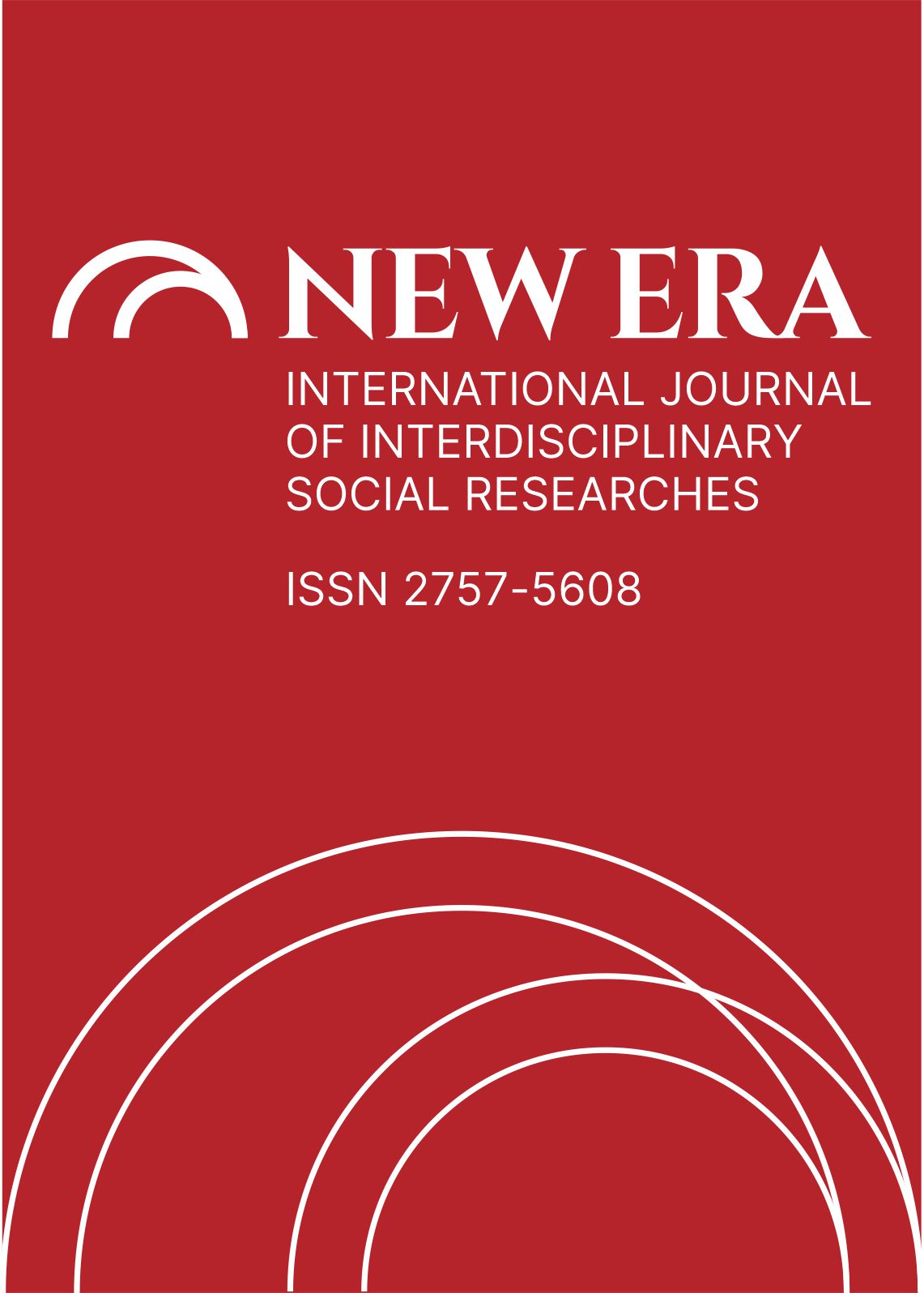SCHOOL PRINCIPAL AS TEACHING LEADER
DOI:
https://doi.org/10.5281/zenodo.7952772Abstract
The principal's primary responsibility is to promote the learning and success of all students. In this article, by focusing on the learning of students, school principals; promoting cooperation; by analyzing the results; by providing support; and how they can achieve this goal by maintaining curricula, teaching and assessment in an organized manner. In the 1980s, an emerging research group on effective schools focused the attention of policymakers and academics on mainstream leadership. This research suggested that the principal's "instructional leadership" role is crucial to school effectiveness. Earlier efforts to examine the impact of principal leadership had begun to identify professional leadership dimensions of the principal's role in influencing school success. However, focusing global attention on instructional leadership was an important legacy of the effective schools movement. At the same time, however, advocating for the practice of "strong instructional leadership" by principals, even in the golden age of effective schools, could not be done without critics and skeptics. They questioned the underlying assumptions and applicability of principal instructional leadership as the dominant paradigm for conceptualizing school leadership. This trend accelerated in the 1990s when academics interested in school improvement advocated transformational leadership and teacher leadership as alternative conceptualizations. Indeed, at the turn of the twenty-first century, instructional leadership seemed to have lost its power as a regulatory concept for school leadership. Still, the rise of the accountability movement at the turn of the twenty-first century has led to a greater focus on the learning outcomes of students and schools. Moreover, it has become an international trend driving the rising tide of globalization. This global interest in education reform with a focus on student learning has once again led to a focus on school leadership in general and instructional leadership in particular. In this study, it is aimed to provide a theoretical clarification on the roles and responsibilities of the school principal as an instructional leader, such as Focusing on Learning, Encouraging Collaboration, and Evaluation to Improve Learning. Literature scanning method was used in the study, and resources/documents related to the subject were determined and collected based on document evaluation methods. School principal as Practitioners; must be a leader with a mentoring role, focusing on organizational management for teaching development rather than daily teaching and learning. Researchers can determine teachers' perceptions of the school principal as the instructional leader by conducting a quantitative research on the subject of the school principal as the instructional leader.
References
Balcı, A. (1993). Etkili Okul; Kuram, Uygulama ve Araştırma. Ankara: Yavuz Dağıtım.
Bıyıklı, C., Işık, R. P., & Doğan, D. (2020). Bilinçli farkındalık ve dikkat eğitiminin öğrencilerin dikkat gelişimlerine etkisi. Uludağ Üniversitesi Eğitim Fakültesi Dergisi, 33(1), 1-35. doi: 10.19171/uefad.458450
Blankstein, AM (2010). Başarısızlık bir seçenek değildir: Öğrenci başarısını tek seçenek haline getirmek için 6 ilke (2. baskı). Thousand Oaks, CA: Sage.
Blase, J. ve Blase, J., 2000. Etkili öğretim liderliği: müdürlerin okullarda öğretimi ve öğrenmeyi nasıl teşvik ettiğine ilişkin öğretmenlerin bakış açıları. Eğitim Başarı Dergisi, 38 (2), 130 -141.
Blase, J., Blase, J., ve Phillips, DY (2010). Okul iyileştirme el kitabı: Yüksek performanslı müdürler nasıl yüksek performanslı okullar yaratır. Thousand Oaks, CA: Corwin Press.
De Bevoise, W., 1984. Öğretim lideri olarak müdür üzerine araştırmaların sentezi. Eğitim Liderliği, 41 (5), 14 -20.
Demirova, G. (2008). Piyano eğitiminin ilköğretim öğrencilerinin dikkat toplama yetisine etkisi. Yayımlanmamış doktora tezi. Ankara Üniversitesi, Eğitim Bilimleri Enstitüsü, Ankara.
Fullan, M., 2013. Harika ila mükemmel: Ontario'nun eğitim gündeminin bir sonraki aşamasını başlatmak. Http :// www. michaelfullan.ca/wp-content/uploads/2013/09/13_Fullan_Great-to-Excellent.pdf adresinden ulaşılabilir .
Hattie, J., 2009. |||UNTRANSLATED_CONTENT_START|||Visible learning: a synthesis of over 800 meta-analyses relating to achievement. |||UNTRANSLATED_CONTENT_END|||Oxon: Routledge. Hattie, J., 2012.
Horng, E. ve Loeb, S., 2010. Öğretim liderliği hakkında yeni düşünceler. Phi Delta Kappan, 92 (3), 66 -69.
Işık, H. ve Aksoy, E. (2008) “İlköğretim Okul Müdürlerinin Öğretim Liderliği Rolleri”. Kırgızistan-Türkiye Manas Üniversitesi Sosyal Bilimler Dergisi, Sayı.19
İlgar, L. (1996) Eğitim Yönetimi, Okul Yönetimi, Sınıf Yönetimi, İstanbul: Beta Basım.
Jones, AC, 2012. Güçlü bir eğitim lideri olmak: her zamanki gibi işe hayır demek. New York, NY: Teachers College Press.
Karakuş, C. (2018). Araştırma Yöntemleri. Erişim Adresi: http://ckk. com. tr/ders/arastirmayon/00% 20Ara% C5% 9Ft% C4% B1rma% 20Y% C3% B6ntemleri. pdf Erişim Tarihi, 20.
Kula, E. (2018). Dikkat becerisi geliştirmeye dayalı programın dikkat eksikliği olan ilkokul öğrencileri üzerindeki etkisinin incelenmesi. Yayımlanmamış yüksek lisans tezi. Necmettin Erbakan Üniversitesi, Eğitim Bilimleri Enstitüsü, Konya.
Kula, E., & Sürücü, A. (2020). Dikkat becerisi geliştirmeye dayalı programın dikkat eksikliği olan ilkokul öğrencileri üzerindeki etkisinin incelenmesi. Kastamonu Education Journal, 28(1), 389-405. doi: 10.24106/kefdergi.3622
Murphy, J., vd., 2016. Şişeleme sisi mi? Öğretim yönetimi arayışı. Cambridge Eğitim Dergisi, 46 (4), 455 -471. doi:10.1080/0305764X.2015.1064096.
Özaslan, U. T., & Bilaç, Ö. (2015). Dikkat eksikliği hiperaktivite bozukluğu epidemiyolojisi. Türkiye Klinikleri J Child Psychiatry-Special Topics, 1(1), 1-5. doi: 10.34087/cbusbed.823404
Özdemir, S. ve Sezgin, F. (2000). “Etkili Okullar ve Öğretim Liderliği”. Gazi Eğitim Fakültesi Eğitim Bilimleri Bölümü Sosyal Bilimler Dergisi, Ankara.
Özden, Y. (1998) Eğitimde Dönüşüm, Ankara: Pegem.
Özmen, K., S., & Demir, Ö. (2012). İlköğretim öğrencilerinin dikkat toplama sürecine ilişkin görüşlerinin incelenmesi. Ç.U. Sosyal Bilimler Enstitüsü Dergisi, 21(1), 135-154.
Sergiovanni, J.T. and J.Starrat R. (1984) Leadership and Excellence In Schooling. Educational Leadership, 13 (4) February.
Tschannen-Moran, M. (2001). Collaboration and the need for trust. Journal of Educational Administration, 39, 308-331.
Tyack, D. ve Hansot, E., 1982. Erdem yöneticileri: Amerika'da devlet okulu liderliği, 1820 -1980. |||UNTRANSLATED_CONTENT_START|||New York, NY: Basic Books.|||UNTRANSLATED_CONTENT_END|||
Downloads
Published
How to Cite
Issue
Section
License
Copyright (c) 2023 NEW ERA INTERNATIONAL JOURNAL OF INTERDISCIPLINARY SOCIAL RESEARCHES

This work is licensed under a Creative Commons Attribution-NonCommercial 4.0 International License.


